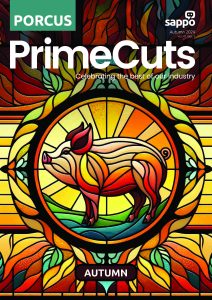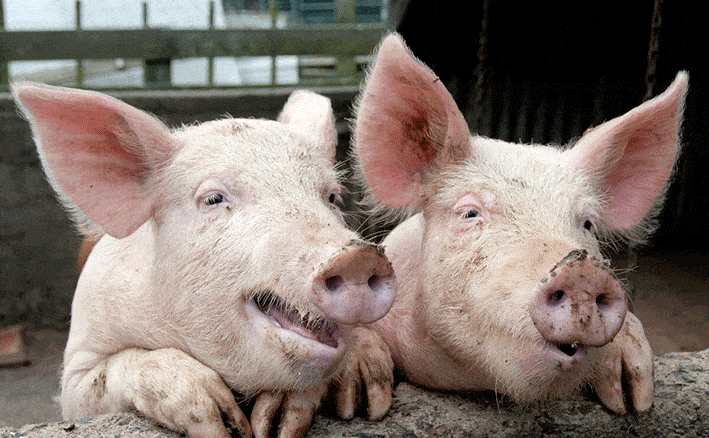The Department of Rural, Environment and Agricultural Development (READ) of the North West province issued a statement explaining its procedures during the ASF outbreak in the province and its plans for the future.
According to the Animal Disease Act 35 of 1984 the farm is put under quarantine and thereby allowing no animal or animal product to come in or go out of the farm.
The purpose of the quarantining exercise is to confine the disease at the index farm and prevent it from spreading to neighbouring farms through movement of infected material. The outbreak has also been reported to the World Organization for Epizootic diseases (OIE) so that the county’s trading partners should know the status.
The disease was diagnosed from pooled tissue samples that were sent to the laboratory from a post mortem conducted by the State Veterinarian of Lichtenburg. The diagnosis was made on a PCR.
ASF is transmitted by a soft tick (Ornithodoros sp) through contact of domestic pigs with wild pigs (Warthogs and Bush pigs). Wild pigs, which are a host to soft ticks, are resistant to the disease and show no clinical signs after being infected by the virus.
These species act as a reservoir host of ASFV in South Africa. South Africa has been zoned by OIE into areas that known to be endemic of the disease and a portion of that zonation are in the North West near Zeerust.African Swine Fever is an acute viral disease (ASFV) of domestic pigs that shows high fever and high mortality and extensive haemorrhaging of internal organs and the skin of the ears. Death can be as high as 100% within a short space of time and can spread very quickly between contact pigs.
Other clinical signs may include poor appetite, depression difficult breathing and diarrhoea.
Pigs may show bleeding from the nose or rectum. Chronically infected pigs show symptoms of weight loss, intermittent fever coughing, skin ulcers and arthritis.
To prevent the disease from entering the country there are strict rules that are implemented when importing products from foreign countries. Measures implemented also include strict control on feeding of swill to pigs. Movement of domestic and wild pigs from demarcated ASF zones is strictly regulated with movement permits. Within ASF Controlled area contact between domestic pigs and wild pigs is achieved through pig proof fences and kraals. There is no vaccine or treatment for African Swine Fever, and so the best method is to prevent it
PLAN OF ACTION
A meeting was held with South African Pig Producers Organisation (SAPPO) in Lichtenburg to discuss strategies for control and the following critical activities were agreed upon. We agreed that it is important that both organisations (READ and SAPPO) should work together on the ground to achieve control.
DETERMINE THE EXTENT OF THE SPREAD
The Directorate Veterinary Services through the Ditsobotla SV would acquire contact details of all neighbouring farms so that we can acquire their cooperation of the farming community. Most neighbours’ contacts had been acquired by yesterday. The pigs that died before Veterinary Services could go to the farm were thrown into a pre-existing pit on the farm. Veterinary Services is going to supply lime to cover the dead pigs.
EPIDEMIOLOGICAL SURVEY
To determine the extent of the spread, a survey would have to be carried out. SAPPO pledged to bring support of up to 8 people and 4 vehicles that would assist in backward and forward tracing through conducting interviews with an assistance of an app. The information gathered would be collated into a report and plotted in maps and shared with DVS. This would provide very useful information about forward and backward tracing. In the same team would be departmental Animal Health Technicians (AHT’s) who would be collecting blood from interviewed farmers’ pigs to determine if there would be antibodies due to chronic disease hidden. There is a plan to search for burrows of warthogs and collect soft ticks from them and send them to OVR for virus isolation. This will also be done at Molemane Game Reserve as well.
BIOSECURITY
This matter was considered to be of extreme importance. It was agreed that the teams that would be visiting farms will wear protective clothing and would disinfect vehicles and themselves after leaving any farm. For that reason the Departmental Emergency Preparedness Unit through VTSS will kick in and support all biosecurity measure that need to be taken. VTSS will provide all gumboots, overalls, raincoats, gloves and disinfectants that are needed. SAPPO similarly pledged to bring similar support for the event
TRAINING
Post the immediate activities, the same team will undertake to conduct awareness campaigns through farmers days to the immediate community and afar. Training will prepare the communities for future prevention strategies about ASF.
Within this outbreak period, farmers are therefore advised to keep strict biosecurity measure in their farms and avoid feeding raw swill to pigs. Pigs owner need to prevent workers from moving from farm to neighbouring farms as their clothes may carry the virus along with them. Any mortalities that are sudden and excessive should be reported to the nearest State Veterinary office.
ASF is not infective to humans, so there is no risk of it being transmitted to humans.
The South African Pork Producers’ Organisation (SAPPO) coordinates industry interventions and collaboratively manages risks in the value chain to enable the sustainability and profitability of pork producers in South Africa.







